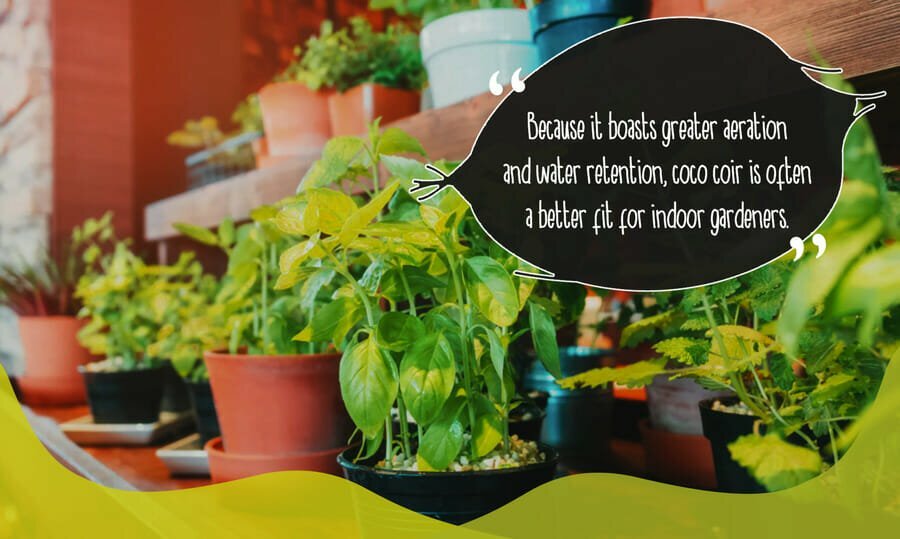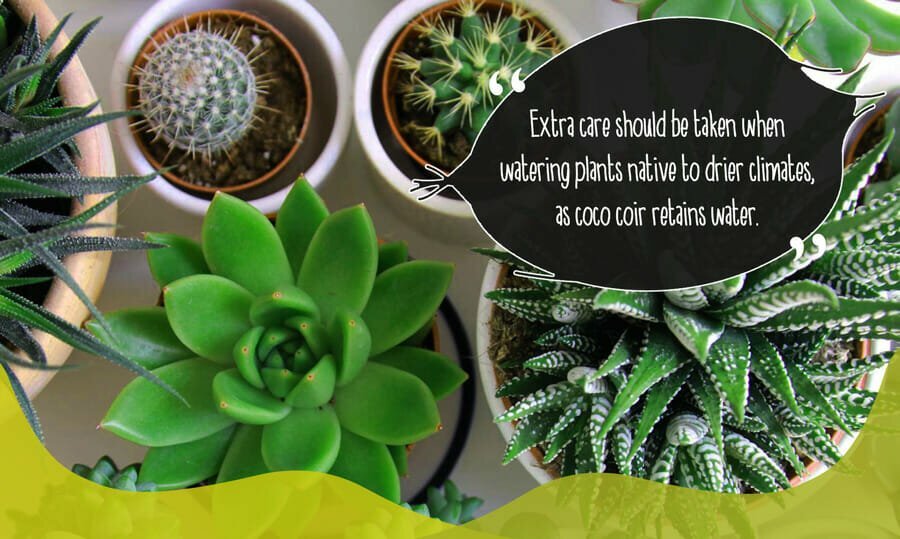How to use coconut coir in gardening
Many of us have found solace in gardening or cultivating indoor plants as more time has been spent at home this past year. The health benefits of gardening are a great means of escapism and self-improvement from the comfort of your own home. Using coco coir in gardening can be a great boost for blooming flowers and plants.
WHAT IS COCO COIR?
Coco coir is a growing medium produced from the husks of coconuts. Previously considered a waste product, the world has now awoken to the boundless possibilities these husks provide.
There are three main horticultural uses for coco coir once it’s been processed, mainly differentiated by their size and texture: coco fibre, coco peat (or pith) and coco chips.
HOW CAN I USE COCO COIR IN MY GARDEN?
Coco coir in all its forms is a great transition from peat-based composts. It can be utilised both indoors and outdoors on a whole host of horticultural products. Because it boasts greater aeration and water retention, coco coir is often a better fit for indoor gardeners than traditional composts and soils.

Preparing coco coir for use with garden plants
Coco coir usually comes in the form of a dehydrated brick. This allows for a more economical and environmentally friendly way of shipping, as opposed to heavy, bulky bags of soil.
To prepare for use, place the brick in a container large enough to hold it once it has rehydrated (usually 5–7 times its starting size). Cover it with between 3 and 4 litres of warm water. Wait at least 15–30 minutes.
Once its ready, fluff the coir until it feels like regular soil.
Coco coir properties
Coir is naturally sterile. It won’t harbour weeds, so nothing unwanted will grow in it.
While it may look like soil, soil nutrients are not naturally present in coco coir. It needs to be enriched with compost or nutrient-rich soil. Alternatively, nutrient-rich plant food can be added.
Coco coir in your soil
Mixing coco coir into existing garden soil can be a boon for plants. Bringing a versatile combination of water retention and natural drainage, the coir will loosen the texture of clay soil, reducing waterlogging.
It will do the opposite for sandy soil: allowing it to better hold water.
Mixing long-fibre coconut coir with coco peat or other substrates helps to aerate compacted soil structures, keeping the ground fresh and fertile for healthy root growth.
COCO PEAT FOR INDOOR PLANTS
Coco peat is a strong growing medium for indoor plants. It can hold more water than regular soil, while simultaneously liquid more freely. This means roots will be well hydrated and aerated, reducing the chances of root rot.
One of the elements that makes coco peat a great fit for hydroponic growers is its slow decomposition rate. Very few nutrients are released into the soil, maintaining that all-important nutrient balance.
If you buy coco peat for indoor growing, it’s advisable to choose the smallest size option due to the yield once it’s prepared.

USING COIR AS A GROWING SUBSTRATE FOR SUCCULENTS
Extra care should be taken when watering plants native to drier climates, as coco coir retains water. It’s easy to inadvertently overwater desert plants. Allow sufficient time between watering for the roots to dry, and water less frequently.
You can also mix coco peat with coarser material such as pumice or sand to replicate the arid soil of the plant’s natural environment. Coco coir with perlite is an excellent option.
BENEFITS OF USING COCO COIR
Coco coir is slow to biodegrade. Once a growing project is done you can just rinse it off and reuse with your next project.
Unlike peat moss alternatives, coco coir is hydrophilic. This means it can be easy rehydrated / rewetted even if it has dried out completely.
The usefulness of coco coir extends to its use with composts. As the coir retains ‘good’ bacteria like the Trichoderma fungus, it can produce enzymes which speed up the composting process.
It also retains nutrients released by other compost ingredients as they break down, ensuring a nutrient-rich final product.
OBTAINING COCO COIR FOR YOUR GARDENING NEEDS
Coco coir is better for the environment, naturally bacterial and fungal-resistant, and lasts longer in soil than peat-based composts. It can also be stored for several months between uses without decomposing, great for seasonal growing!
Ready to mix coco coir with your green-fingered ambitions? At Coco & Coir, we provide a wide range of coco coir-derived composting materials, including peat bricks, chips, and substrate mixes.










